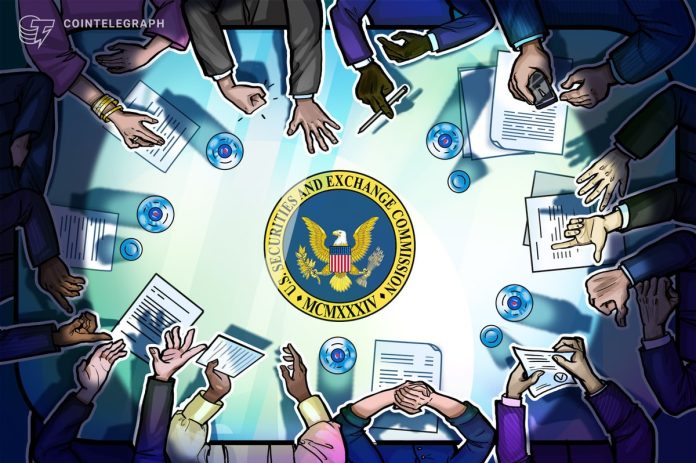The US Securities and Trade Fee (SEC) is contradicting years of its personal coverage tips within the newest motion in opposition to decentralized crypto change Uniswap, mentioned Cinneamhain Ventures’ Adam Cochran.
In a authorized evaluation on X (previously Twitter), Cochran referred to a number of earlier selections by the U.S. regulator over the definition of an change and what it means for Uniswap’s potential authorized battle.
The SEC has beforehand issued No-Motion Letters in 1986, 1991, and 1997 for entities searching for steering on routing and matching trades electronically. In keeping with Cochran, the entities had been “seeking to set up their first system for routing and matching trades electronically. They had been involved that might make them an “change.”
“However the SEC concluded that as a result of the execution was on a separate system that matching, routing, speaking and ordering as a “pc service system” didn’t meet the holistic definition of “an change.”
One other precedent that contradicts the SEC pertains to the classification of front-ends as an change. The regulator’s steering in letters from 1989 and 1990 was that an interface that shows and communicates with an change shouldn’t be in itself an change.
“The SEC steering discovered that as a result of these interfaces, despite the fact that they profited from bringing collectively patrons and sellers to change specific securities the truth that the settlement and fee occurred elsewhere meant these interfaces weren’t exchanges,” defined the enterprise capitalist.

Cochran additionally famous that in 1998, on the SEC No-Act. LEXIS 18, the Fee declared the matter settled and would not reply to No-Motion Letter requests.
As well as, connecting patrons and sellers doesn’t represent an change. The SEC offered this steering to firms in 1979, 1996 and 1999, based on Cochran’s evaluation.
“The change wanted to contain the authorized switch of the property and/or funds. So despite the fact that a purchaser on Uniswap might decide to a purchase order, by signing a transaction with their non-public key the Uniswap Labs frontend, isn’t what’s settling it.”
One other related level within the evaluation considerations asset itemizing. In 1998, the Fee discovered that having an digital system for frequent shares that aren’t listed on an present change doesn’t represent an change, no matter whether or not charges are charged.
“On this case, the fee discovered that after once more, as long as their informational interface was no clearing and settling these transactions, then simply because it was the first itemizing location of an asset, it was not in some way extra of an change.”
SEC’s Wells discover
Uniswap allows automated token exchanges on the Ethereum blockchain, permitting customers to swap a number of crypto tokens with out utilizing conventional intermediaries.
Uniswap Labs, Uniswap’s major developer, has been underneath regulatory scrutiny since 2021. On April 10, nonetheless, the platform was served a Wells discover — a proper notification that the regulator’s workers intends to advocate enforcement motion.
Uniswap Labs beforehand claimed that it was solely liable for creating the app’s front-end portal. In keeping with Labs’ staff, the front-end is separate from the Uniswap protocol itself, which is autonomous code launched for public use.
Cochran’s evaluation backs up these claims. In keeping with him, the front-end and the sensible contract are separate components in a crypto commerce.
“In actual fact, we all know these components are distinct, as a result of you possibly can execute trades on the sensible contract by different interfaces (like Etherscan or swap aggregators), and even straight by a node.”
Journal: Bitcoin ETFs make Coinbase a ‘honeypot’ for hackers and governments — Trezor CEO

